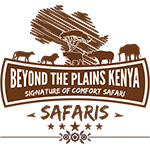
Lake Kivu
Lake Kivu, situated in the heart of Africa, is one of the continent's smallest Great Lakes but stands as the third deepest and highest-altitude lake. This pristine water body is surrounded by regions with remarkably high population densities and growth rates, making it a crucial resource for the local communities. However, the lake faces various challenges, including threats to its ecosystem and potential risks associated with methane extraction. This article provides an informative and SEO-based overview of Lake Kivu, highlighting its significance, biodiversity, economic importance, and the urgent need for sustainable conservation measures.
It is located in the African Great Lakes (AGL) region, straddling the borders of Rwanda and the Democratic Republic of the Congo (DRC). Despite being one of the smallest AGL, it boasts impressive characteristics, being the third deepest and situated at a high altitude. Its strategic location amidst densely populated areas emphasizes its critical role in providing various ecosystem services and sustaining livelihoods.
It's supporting a diverse aquatic ecosystem, hosting approximately 28 fish species. Half of these species are unique cichlids found exclusively in the lake, contributing to its ecological significance and attracting researchers and conservationists worldwide. The lake's abundant fish population is a vital resource for Rwanda, providing over 20,000 tons of fish annually. Lake Kivu's enchanting islands and surrounding areas offer tremendous possibilities for eco-tourism. Its pristine waters, diverse wildlife, and picturesque landscapes attract nature enthusiasts, adventure seekers, and travelers looking for unique experiences. Sustainable development of eco-tourism could not only boost the local economy but also encourage conservation efforts.
Lake Kivu faces several threats that put its delicate ecosystem at risk. Rapidly increasing fishing pressure, deforestation, agricultural intensification, urbanization, and the impacts of climate change are among the major challenges endangering the lake's ecological balance. Urgent actions are required to address these issues and preserve Lake Kivu's natural heritage for future generations.
Lake Kivu, despite being one of the smallest African Great Lakes, holds immense environmental, economic, and social significance for the region. Its unique biodiversity, thriving fishery, sustainable energy potential, and eco-tourism opportunities make it a valuable resource for the local communities. To safeguard this fragile ecosystem, it is crucial for stakeholders, governments, and conservation organizations to work together in implementing sustainable measures and ensuring the long-term health and prosperity of Lake Kivu.
Highlights:
Lake Kivu, located in the heart of Africa, stands out for several remarkable highlights that make it a unique and significant water body in the region. Here are the key highlights of Lake Kivu:
Depth and Altitude: Lake Kivu is the third deepest lake in Africa, with a maximum depth of approximately 485 meters (1,591 feet).
Biodiversity: The lake is home to around 28 fish species, half of which are cichlids found exclusively in Lake Kivu.
Population and Growth: The areas surrounding Lake Kivu have one of the highest population densities in the African Great Lakes region.
Fishery Importance: Lake Kivu plays a vital role in supporting the local economy, particularly through its fishery.
Eco-Tourism Potential: Lake Kivu's scenic islands and picturesque surroundings provide a perfect setting for eco-tourism.
Threats to the Ecosystem: The lake faces various threats, including increasing fishing pressure, deforestation, agricultural intensification, urbanization, and the impacts of climate change.
Transboundary Lake: Lake Kivu spans across two countries, Rwanda and the Democratic Republic of the Congo (DRC).
Local Livelihoods: The fishery of Lake Kivu supports around 500,000 people in Rwanda and the DRC, providing essential livelihood opportunities to the local communities.


























